Filter by
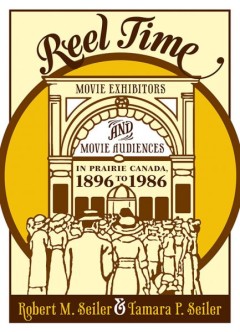
Reel Time Movie Exhibitors and Movie Audiences in Prairie Canada, 1896 to 1986
As marketing efforts, the lavish interiors of the movie palace and the romantic view of the local movie theatre concealed a competitive environment in which producers, exhibitors, and distributors tried to monopolize the industry and drive their rivals out of business. The pitched battles and power struggles between national movie theatre chains took place at the same time that movie exhibitors…
- Edition
- -
- ISBN/ISSN
- 978-1-926836-99-7
- Collation
- -
- Series Title
- -
- Call Number
- 397 pages
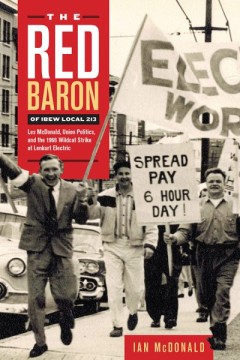
The Red Baron of IBEW Local 213 Les McDonald, Union Politics, and the 1966 W…
Referencing Local 213’s Minute Books, newspaper articles, collected correspondence, as well as dozens of personal interviews conducted by the author, this book examines the history of IBEW Local 213 in the turbulent years leading up to the Lenkurt strike. In addition to describing these events and their important historical ramifications, author Ian McDonald chronicles how his father helped t…
- Edition
- -
- ISBN/ISSN
- 9781771993487
- Collation
- -
- Series Title
- Working Canadians: Books from the CCLH
- Call Number
- 6 x 9, 404 pages
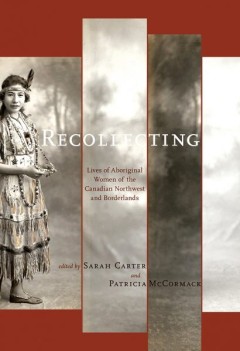
Recollecting Lives of Aboriginal Women of the Canadian Northwest and Borderl…
Some essays focus on individuals—a trader, a performer, a non-human woman. Other essays examine cohorts of women—wives, midwives, seamstresses, nuns. Authors look beyond the documentary record and standard representations of women, drawing on records generated by the women themselves, including their beadwork, other material culture, and oral histories. Exploring the constraints and boundar…
- Edition
- -
- ISBN/ISSN
- 978-1-897425-82-4
- Collation
- -
- Series Title
- The West Unbound: Social and Cultural Studies
- Call Number
- -
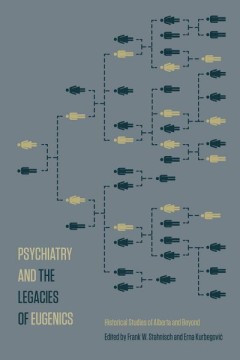
Psychiatry and the Legacies of Eugenics Historical Studies of Alberta and Be…
Using institutional case studies, biographical accounts, and media developments from Western Canada and Europe, contributors trace the impact of eugenics on nursing practices, politics, and social attitudes, while investigating the ways in which eugenics discourses persisted unexpectedly and remained mostly unexamined in psychiatric practice. This volume further extends historical analysis into…
- Edition
- -
- ISBN/ISSN
- 9781771992657.01
- Collation
- -
- Series Title
- -
- Call Number
- 6 x 9, 412 pages
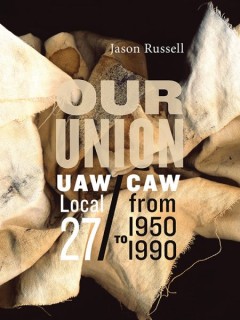
Our Union UAW/CAW Local 27 from 1950 to 199
In Our Union, Jason Russell argues that the union local, as an institution of working-class organization, was a key agent for the Canadian working class as it sought to create a new place for itself in the decades following World War II. Using UAW/CAW Local 27, a broad-based union in London, Ontario, as a case study, he offers a ground-level look at union membership, including some of the socia…
- Edition
- -
- ISBN/ISSN
- 978-1-926836-43-0
- Collation
- -
- Series Title
- Fabriks: Studies in the Working Class
- Call Number
- 336 pages
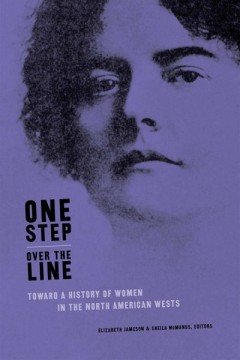
One Step Over the Line Toward a History of Women in the North American Wests
Sixteen essays arising from the “Unsettled Pasts: Reconceiving the West through Women’s History” conference at the University of Calgary comprise this foundational text. One Step Over the Line is not only the map; it is the bridgework to span the transnational, gendered divide—a must for readers who have been searching for a wide, inclusive perspective on our western past.
- Edition
- -
- ISBN/ISSN
- 9780888645012.01
- Collation
- -
- Series Title
- The West Unbound: Social and Cultural Studies
- Call Number
- 474 pages
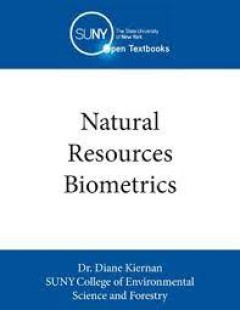
Natural Resources Biometrics
Natural Resources Biometrics begins with a review of descriptive statistics, estimation, and hypothesis testing. The following chapters cover one- and two-way analysis of variance (ANOVA), including multiple comparison methods and interaction assessment, with a strong emphasis on application and interpretation. Simple and multiple linear regressions in a natural resource setting are covered in …
- Edition
- -
- ISBN/ISSN
- 9781942341178
- Collation
- -
- Series Title
- -
- Call Number
- 540 KIE n
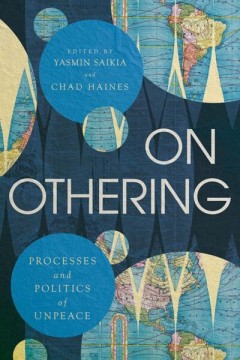
On Othering Processes and Politics of Unpeace
On Othering: Processes and Politics of Unpeace examines the process of othering from an international perspective and considers how it undermines peacemaking and is perpetuated by colonialism and globalization. Taking a humanistic approach, contributors argue that celebrating differences can have a transformative change in seeking peaceful solutions to problems created by people, institutions, …
- Edition
- -
- ISBN/ISSN
- 9781771993876
- Collation
- -
- Series Title
- -
- Call Number
- 6 x 9, 360 pages
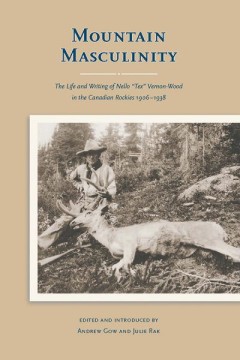
Mountain Masculinity The Life and Writing of Nello “Tex” Vernon-Wood in …
In 1906, Nello Vernon-Wood (1882–1978) reinvented himself as Tex Wood, Banff hunting guide and writer of “yarns of the wilderness by a competent outdoorsman.” His homespun stories of a vanishing era, in such periodicals as The Sportsman, Hunting and Fishing, and the Canadian Alpine Journal, have much to tell us about the west as envisioned by those who wanted to leave the industrialized w…
- Edition
- -
- ISBN/ISSN
- 9781897425022.01
- Collation
- -
- Series Title
- -
- Call Number
- 237 pages
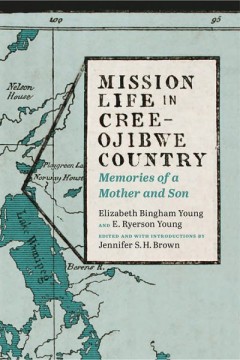
Mission Life in Cree-Ojibwe Country Memories of a Mother and Son
Accompanying Elizabeth’s memoir, and offering a counterpoint to it, are the reminiscences of her eldest son, “Eddie.” Born at Norway House in 1869 and nursed by a Cree woman from infancy, Eddie was immersed in local Cree and Ojibwe life, culture, and language, in many ways exemplifying the process of reverse acculturation often in evidence among the children of missionaries. Like those of…
- Edition
- -
- ISBN/ISSN
- 9781771990035.01
- Collation
- -
- Series Title
- Our Lives: Diary, Memoir, and Letters
- Call Number
- 336 pages
 Computer Science, Information & General Works
Computer Science, Information & General Works  Philosophy & Psychology
Philosophy & Psychology  Religion
Religion  Social Sciences
Social Sciences  Language
Language  Pure Science
Pure Science  Applied Sciences
Applied Sciences  Art & Recreation
Art & Recreation  Literature
Literature  History & Geography
History & Geography